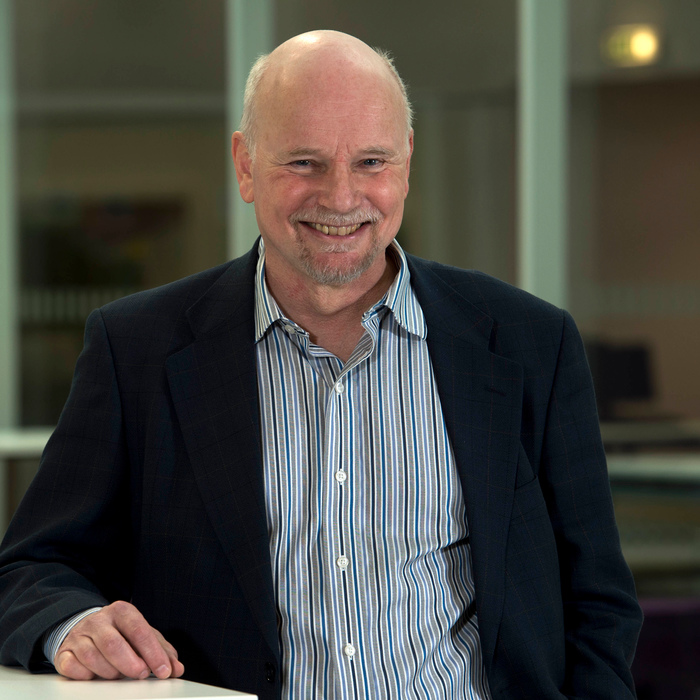Rivers and Lochs Institute to study non-native salmon
THE latest genomics technology at the Inverness College UHI Rivers and Lochs Institute (RLI) could be used to help understand the reasons behind the increasing numbers of non-native pink “humpback” salmon in Scottish rivers and across Western Europe.
Professor Eric Verspoor, director of the RLI, intends to use the Institute’s state of the art molecular genetics laboratory, which carries out research into freshwater biodiversity, to increase awareness of this potentially invasive non-native salmon.
Numbers of non-native pink salmon spotted in Scotland are on the increase but the full extent of their invasion and the impact on native Atlantic salmon stocks is unknown.
The RLI is exploring using DNA shed into the environment (eDNA) by the non-native salmon, to help understand the scale of their spread and breeding to produce viable off-spring in Scottish rivers. The information will be used to advise on the future threat to native Atlantic salmon.
Professor Verspoor, an ecological population geneticist with 35 years’ experience using molecular genomics to inform fisheries management focused on Atlantic salmon, said: “Atlantic salmon are important to Scotland, economically, culturally and historically, and the concern is this non-native species could have an impact. Over the last 50 years there have been only a handful of isolated reports of non-native salmon in the UK, but this year alone there have been sightings in many rivers from the north of Scotland to southern England. We already know this includes both males and females and the fish are in a maturing state. They have already been observed building spawning redds (nests) and spawning in the River Ness but we still need to know if this results in viable juveniles and permanent populations in our rivers. Also, while we know they can’t interbreed with the Atlantic salmon, the presence of pink salmon in Scottish rivers may impact Atlantic salmon reproduction by disturbing nests, introducing diseases or parasites, or competition for food. Therefore, it’s essential we understand if its increasing prevalence in rivers is going to be an issue in the future. In this respect, we are developing partnerships with colleagues on the River Ness Fisheries Board, across the UK, and in Russia, where pink salmon have interacted with native Atlantic salmon stocks for many decades, to extend understanding of the actual impacts. ”
It is most likely the non-native salmon have migrated from populations in the Russian Kola Peninsula and White Sea region, or Norway, where small colonies have become established from introductions in the 1950s and 1980s. They are smaller than the Atlantic salmon and get their name from their distinctive ‘humpback’ appearance.
Research into this invasive non-native salmon is just one project made possible by the new RLI molecular genomics facility, which was established to support freshwater biodiversity management through research, training and education.
Professor Verspoor will deliver a talk on pink salmon at Scotland’s Salmon Festival’s International Science Conference on Thursday 31st August entitled ‘Evil Invaders or Welcome Immigrants: Pink Salmon in Scotland and Western Europe”. He will also give a public lecture on the evening of the 31st entitled “A natural history of Scotland’s Atlantic salmon clans and the unnatural history of its pink cousins”. Tickets are still available at www.scotlandsalmonfestival.org.
Scotland’s Salmon Festival is a biennial event led in partnership by Inverness College UHI, which takes place in Inverness between Tuesday, 29th August and Saturday, 2nd September.
The event is the first of its kind which celebrates the Atlantic salmon and its importance to Scotland, economically, culturally and historically. It ran for the first time in 2015 and attracted 3500 people.
The festival also includes a film night at Eden Court Theatre on Tuesday 29th August, tours on Alexander Grant – Inverness’ famous fishing rod maker and speycaster - at Inverness Museum and Art Gallery on Thursday 31st August, and Inverness Angling Club’s Centenary Speycasting Tournament on the River Ness on Friday 1st and Saturday 2nd September. The speycasting tournament will coincide with a free family fair at Bught Park, which runs from 11am to 4pm on both days and includes cookery demonstrations by top chefs at the Marine Harvest Theatre Kitchen, a food and craft marquee featuring local exhibitors, plus children’s activities including face painting, a bouncy castle, arts and crafts, story-telling, electrofishing, casting lessons and invertebrate trays.
Scotland’s Salmon Festival has been organised in partnership with the Ness District Salmon Fishery Board, Inverness Angling Club, Marine Harvest, cbec eco-engineering, and supported by EventScotland - part of VisitScotland’s Events Directorate,, Highland Council, Inverness Common Good Fund, Culligran Estate, the Drumossie Hotel, Ness Castle Lodges, SSE, Tomatin Distillery, Graham’s of Inverness and The Scottish Ghillie.
For more information about Scotland’s Salmon Festival and for tickets to the film night, international conference or public lectures, visit www.scotlandsalmonfestival.org
Find out about research at Inverness College UHI Rivers and Lochs Institute.
